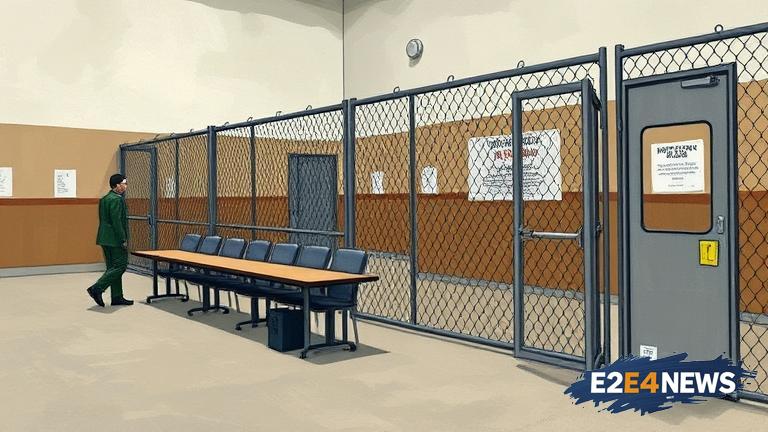The immigration detention bond hearing process in the United States has been a topic of debate and controversy in recent years. The process, which is designed to determine whether an individual should be released from detention while their immigration case is pending, has been criticized for being unfair and inhumane. Many argue that the process is biased against detainees, with bond amounts often being set too high for them to afford. This can result in individuals being detained for long periods of time, sometimes for years, while their case is being processed. The detention centers where these individuals are held have also been criticized for their poor conditions and treatment of detainees. Despite these criticisms, the US government has continued to defend the process, arguing that it is necessary to ensure national security and public safety. However, many advocates and lawyers argue that the process is in dire need of reform. They point to the fact that many detainees are not given adequate access to legal representation, and that the bond hearing process can be confusing and intimidating. Furthermore, the use of detention as a means of enforcing immigration laws has been criticized for being overly punitive and ineffective. In addition, the financial burden of detention on taxpayers is significant, with the cost of detaining a single individual estimated to be over $100 per day. The controversy surrounding the immigration detention bond hearing process has sparked a national debate about the need for immigration reform. Many are calling for a more humane and efficient approach to handling immigration cases, one that prioritizes the rights and dignity of all individuals, regardless of their immigration status. The issue has also highlighted the need for greater transparency and accountability in the immigration system, particularly with regards to the treatment of detainees. As the debate continues, it remains to be seen what changes will be made to the immigration detention bond hearing process. However, one thing is clear: the current system is in need of reform, and it is up to policymakers and advocates to work towards creating a more just and equitable system. The US government has a responsibility to ensure that the rights of all individuals are protected, regardless of their immigration status. This includes providing access to fair and timely bond hearings, as well as ensuring that detention centers are safe and humane. Ultimately, the goal should be to create a system that is fair, efficient, and respectful of the dignity and human rights of all individuals. The immigration detention bond hearing process is a complex issue that requires a comprehensive and nuanced approach. It is an issue that affects not only the individuals who are detained, but also their families and communities. As such, it is essential that policymakers and advocates work together to create a system that is just and equitable for all. The use of detention as a means of enforcing immigration laws is a controversial issue that has sparked a national debate. While some argue that it is necessary to ensure national security and public safety, others argue that it is overly punitive and ineffective. The financial burden of detention on taxpayers is also a significant concern, with the cost of detaining a single individual estimated to be over $100 per day. In addition, the detention centers where individuals are held have been criticized for their poor conditions and treatment of detainees. Despite these criticisms, the US government has continued to defend the use of detention, arguing that it is necessary to ensure national security and public safety. However, many advocates and lawyers argue that the use of detention is in dire need of reform. They point to the fact that many detainees are not given adequate access to legal representation, and that the detention process can be confusing and intimidating. Furthermore, the use of detention as a means of enforcing immigration laws has been criticized for being overly punitive and ineffective. In conclusion, the immigration detention bond hearing process is a complex and controversial issue that requires a comprehensive and nuanced approach. It is an issue that affects not only the individuals who are detained, but also their families and communities. As such, it is essential that policymakers and advocates work together to create a system that is just and equitable for all.
